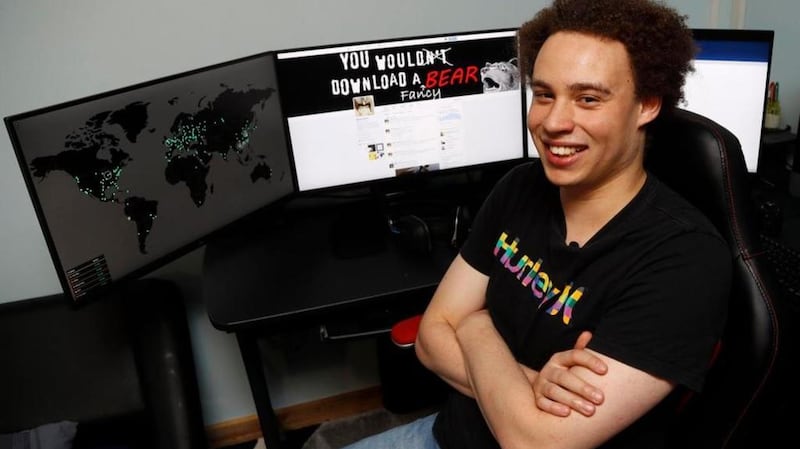A British cybersecurity researcher credited with stopping a worldwide computer virus last year faces charges, including lying to the FBI, in an updated indictment on Wednesday that accuses him of developing malware to steal banking information.
Marcus Hutchins now faces 10 charges alleging that he created and distributed malware known as Kronos in the revised indictment in the Eastern District of Wisconsin. The prosecutors' updated filing comes as a federal judge weighs a request from Mr Hutchins' lawyers to suppress the statements he made to the FBI when the agents detained him August 2. His lawyers say he was not properly informed of his rights.
Moments after the charges were filed, he sent tweets asking for donations for his defence and disparaging prosecutors. He used profanity to describe prosecutors in one tweet he has since deleted.
Mr Hutchins, 23, has pleaded not guilty.
His arrest came months after he was lauded for finding a 'kill switch' to the WannaCry virus which crippled computers worldwide, encrypting files and making them inaccessible unless people paid a ransom ranging from $300 to $600.
_______________
Read more:
[ Man who cracked WannaCry cyberattack says he’s no hero ]
[ Bail of $30,000 set for UK cyber expert Marcus Hutchins ]
_______________
FBI agents detained him in Las Vegas before he boarded a flight home to England and interrogated him for nearly two hours. The agents said Mr Hutchins spoke to them voluntarily.
The updated charges contain new details of the FBI's investigation of Mr Hutchins, including aliases of people he allegedly conspired with online to advertise and sell Kronos. Prosecutors said Mr Hutchins and another individual posted a video on YouTube in 2014 to "demonstrate how Kronos worked and to promote the sale of Kronos".
The indictment said the crimes happened between July 2014 and July 2015, but prosecutors have not offered any details about the number of victims.






